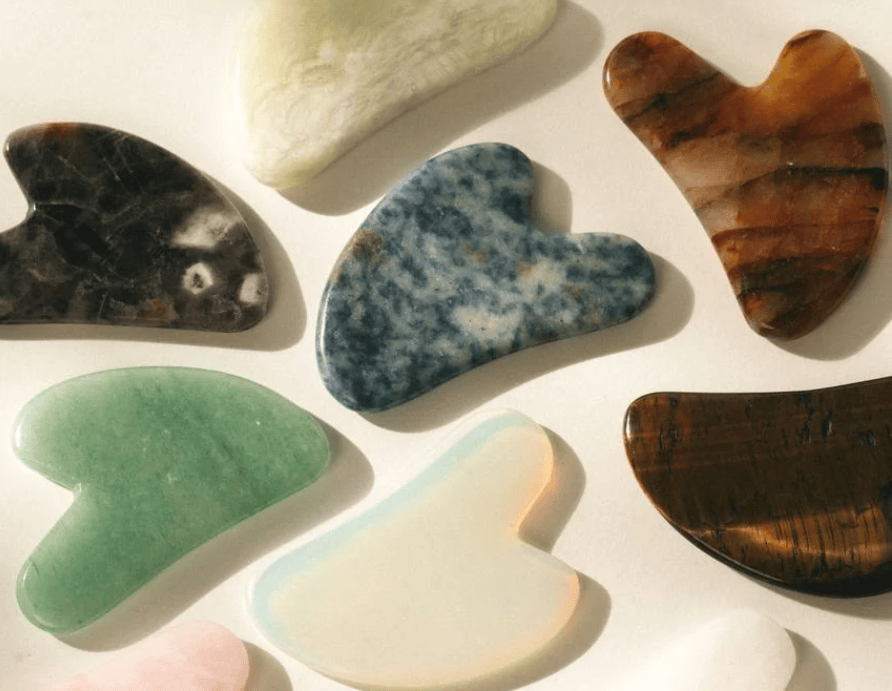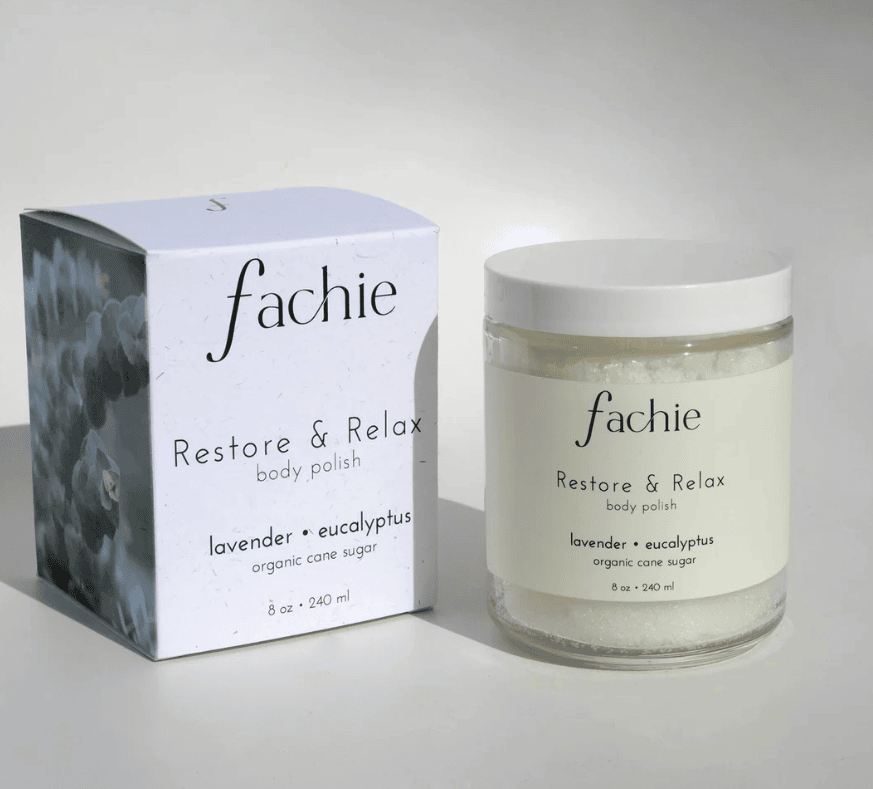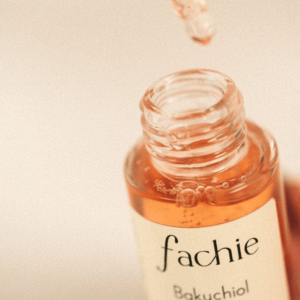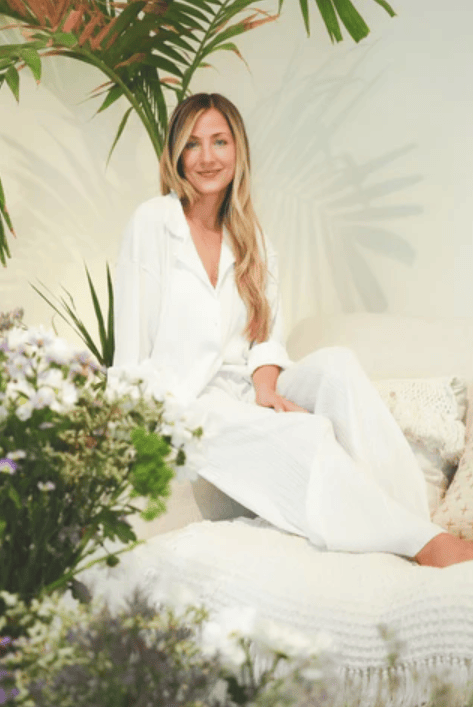For as long as I can remember, I related skin health and anti-aging as meaning the same thing. From how the product is marketed, the advertising, and my lack of knowledge about skin health, no wrinkles meant healthy skin.
We’ve been made to believe our worth is tied to our beauty, and our beauty is tied to our youth. That belief is so deeply ingrained in us and the world around us that it feels impossible, even pointless, to fight it. We’re buying into an anti-aging ideology because it makes us feel better about ourselves and allows for better treatment, pay, and opportunities.
Recently, I’ve seen more people speak out against anti-aging culture, including Jamie Lee Curtis, Renee Zellweger, and Julia Fox. But why are people speaking out now? How is promoting anti-aging toxic? How do we focus on our skin health without focusing on anti-aging?
The Anti-aging Beauty Market
When I care for my skin, I notice how my skin looks clearer. But as I have gotten older, I noticed how my skin has changed and matured. As normal as this is, companies know this, and in the words of Vox, turn us into a customer for life. In 2021, the anti-aging market in the United States grew from $3.9 billion in 2016 to $4.9 billion in 2021. Globally, the anti-aging market grew $12 billion in that period alone.
One of the reasons for this growth is the unrealistic beauty standards we are pressured to meet. Through retouched ads, retouched social media posts, and the ever-changing skin trends, we all want to keep up with the trends. This keeps us buying more of what is supposed to work to keep us socially acceptable and continue growing the market. As these beauty trends change, they become more unrealistic and unattainable. Aging becomes something we must chase and is shamed instead of celebrated.
One of the reasons society rejects its aging members is because we’ve linked our self-worth and economic worth, and as Shai Held recently wrote in The Atlantic, “When people are measured and valued by their economic productivity, it is easy to treat people whose most economically productive days have passed as, well, worthless.”
Skin Health > Anti-Aging
According to Jessica Defino, most things we put on our faces “ages” us. A healthy skin barrier and a diverse skin microbiome provide little protection from environmental exposure.
Dermatologist Dr. Loretta was among the first to study the sun’s effects on the skin at Harvard, and based on her research, there are four main types of exposure: pollution, light, climate, and irritants.
Here are a few important ways you can take care of your skin:
- Wear SPF and protect your skin barrier.
- this step is important in decreasing skin cancers that are at higher risk due to the depletion of the ozone layer. Sources of light include UVA/UVB rays and HEV blue light from the sun and electronics. Accumulated exposure causes uneven skin pigment, loss of firmness, wrinkles, sensitivity, and rough texture.
- Use warm instead of hot when showering or washing your face.
- Hot water can strip away the natural oils your skin needs to thrive. Every time you slather something on your skin— even water—you temporarily alter the microscopic biome populations in your skin.
- Do not use harsh soaps or ingredients.
- Irritation can come from skincare ingredients like sulfates and artificial fragrances, leading to the breakdown of collagen and elastin, causing irritation and sensitivity. Some irritants include sodium lauryl sulfate (SLS), sodium laureth sulfate (SLES), parabens, formaldehyde-releasing ingredients, artificial dye, ethyl alcohol, phthalates, propylene glycol,kojic acid, triclosan, BHA (butylated hydroxyanisole) and BHT (butylated hydroxytoluene).
- Minimize your products – Choose beauty tools meant to last and quality over quantity.
- Protect your barrier and microbiome by keeping a balanced diet and staying hydrated. The skin barrier needs omega fatty acids to function optimally, but it can’t make omegas on its own, so in this case, diet is key. Essential fatty acids maintain the top layers of skin designed to form a barrier that locks in hydration and locks out irritants, allergens, and bacteria. Add nuts, seeds, and salmon to your grocery list!
- Manage your stress, sleep and time for yourself.
- Our skin is our largest organ and deserves to be cared for in a healthy way all around.
Brands We Love to Love
Use Code CADA15



A conversation with Lauren Fache from Fachie Market

Hi! Tell us a little bit more about you.
My name is Lauren Fache, but my friends call me Fachie. I was born and raised in Miami, and I am Cuban & Belgian. I began my skincare career fifteen years ago after working in marketing for several skincare and wellness brands. I shifted my focus to brand development at a formulation lab in Miami 8 years ago, where I manufactured skincare and haircare lines for top brands worldwide.
Creating Fachie Market was my natural next step as an extension of my personal ethos to encourage women to embrace a natural lifestyle. I pictured a fair and transparent marketplace that celebrated the beauty of aging gracefully and emphasized the use of natural ingredients in the products we created.
As a 15-year skincare expert, what does skincare mean to you?
Being in the skincare industry for 15 years has given me the time to learn that skincare is more than just the newest ingredients on the market or the most remarkable trends. Skincare is about finding the balance for our skin health. Once we take the time to understand our skin and what it needs, then we can find a routine that works for us and our skin type. That’s when our skin will get the nourishment it needs and will begin to glow.
It’s been an amazing experience to further my knowledge of the science behind skincare, including the breakdown and benefits of different ingredients and how they work together to achieve results. That knowledge ensures that our Fachie products are formulated with the perfect balance of natural ingredients that deliver optimal results for your skin.
How do we value and create a healthy relationship with our skin?
Setting time aside to love your skin and get to know it is essential. How does it react? What does it like? What does it need today?
Awareness of what irritates or soothes your skin means you’re one step closer to a healthy relationship with your skin because you’re taking notice and inherently creating a bond. It’s simple, yes, but we often forget to listen to ourselves or need guidance.
How do you believe social media has played a part in toxic anti-aging culture?
I truly believe social media has encouraged unattainable beauty standards, leading to higher body dissatisfaction and self-criticism. Our current culture often idolizes harmful techniques and imagery. This encourages people to feel that aging must be prevented at all costs, as if growing old is the worst thing that could happen to them.
Social media platforms have promoted this issue by favoring content that conforms to specific beauty standards. People feel compelled to alter themselves to keep up with the unrealistic trend of the week.
What other factors do you believe play a role in these conversations?
Consumption is another contributor to toxic anti-aging culture. The beauty and wellness industries are worth billions of dollars, and companies frequently sell their products by instilling fear and making false promises. This creates a culture in which people feel pressured to constantly purchase new products and treatments for remaining young and beautiful.
We take a stand to offer better beauty practices that develop a healthy relationship with your skin and its needs. Our market consciously curates our sourcing, formulating, and advertising to keep a wholesome image as our target ideal beauty.
Why is it important to focus on skin health rather than its overall appearance?
The importance of skin health over appearance is comparing happy, healthy skin to that of a quick fix. People forget that our skin is more than it looks. It’s our shield from the outside world and a barrier against irritants, pollutants, and bacteria. Healthy skin health means your skin works with you to protect your body. People damage their skin’s overall protection and longevity to attain immediate results (getting the summer tan or trying products that may be too harsh for their skin because they saw a celeb using it). Taking care of your skin is an essential and long-term process, so we should nourish it with natural vitamins and nutrients that improve its resilience, strength, and overall well-being. You’re committing to understanding and growing with your skin by focusing on skin health. Put the health of your skin first.

